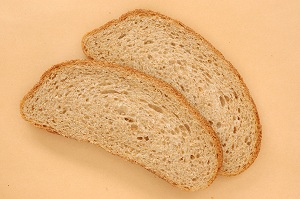
If you pay attention to the labels when you do your grocery shopping, you’ve probably noticed the words “gluten free” appearing on the packages of some of your favorite foods. I know I have. But what does gluten free mean anyway? Does it mean storing away your bread cutting board and never again have the joy of slicing a fresh loaf of bread? Not quite. While this diet is not for everyone, there are advantages to ditching gluten for good, and here is why.
Why go gluten free?
Normally, the only people who need to completely remove gluten from their diets have been diagnosed with celiac disease. Celiac is a lifelong, often hereditary illness that affects the digestive system and is triggered by gluten. Gluten is a protein that can be found in common foods like wheat, rye and barely. To a person with celiac disease, gluten is major nuisance to their daily lives because it triggers an abnormal response in the body that damages the lining of the small intestine and prevents the normal absorption of nutrients. The most common symptoms of celiac disease are bloating, excess gas, fatigue, diarrhea and abdominal pain. More severe symptoms include anemia, irritability and depression.
Can you cut gluten from your diet even if you are healthy?
Some people chose to store away their wood bread cutting boards even if they have not been diagnosed with celiac disease. Most of these people decide to make that change because they want to solve their digestive problems or fatigue issues. According to Doug Cook, a Toronto-based dietitian, gluten sensitivity is more common and our day and in age than it used to be and some people live happier, healthier lives by eliminating or cutting back their consumption of gluten rich products.
Just because you feel tired, doesn’t mean you have celiac disease
If you sometimes feel tired or you have excess gas every once in a while, that doesn’t mean you should go gung ho and throw away any items in your pantry that might contain gluten. Diagnosing celiac disease is a long procedure. It can sometimes take up to ten years before experts can accurately determine if a patient has the disease or not. Gluten has to be present in the patient’s system in order for an appropriate diagnostic to be made. A biopsy of the small intestine is needed to properly indentify celiac disease. If gluten is completely gone from a person’s system and the biopsy doesn’t reveal any sign of celiac disease, it could be a false negative, meaning celiac disease could be present in the patient’s body and that could lead to some serious complications.